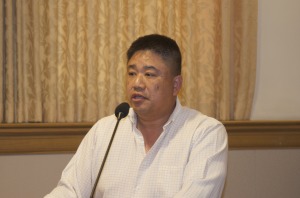Councilmembers Endorse Prompt Payments to Nonprofits
Nov 1, 2014
Posted in Business, Economic Development, Oakland Job Programs, Responsive Government
By Ken Epstein
The City Council’s Finance and Management Committee this week endorsed an amendment to its Prompt Payment Ordinance that will ensure nonprofits that contract with the City of Oakland will receive payments for the work they do in a timely manner.
The proposed ordinance will affect payments to many of the agencies in the city that work with youth, provide job training and reentry support for the formerly incarcerated.
Many of these agencies, especially, the smaller nonprofits, have frequently complained that they in effect they have had to float a loan to the city, as they wait for months or even over year for the city to pay invoices of tens of thousands of dollars or more for work that has already been completed.

“Look (at the impact) on small profits, which often are serving the most vulnerable people in the city,” said Councilmember Desley Brooks, speaking at Tuesday’s meeting.
“They did the work and did not get paid for over a year,” she said. “Some organizations had to lay off people. They did good work for the city, and yet we didn’t pay them.”
An amendment to the prompt payment ordinance should have been unnecessary, according to Brooks, who wrote the original ordinance in 2008. . Though it should have applied to nonprofits, the City Attorney ruled that it only applied to private contactors, she said.
“Typically, if there is a question, they look at the legislative intent,” said Brooks. “You would have thought somebody would have come and asked me what was the intent.”
“The city should always pay its bills on time,” said Councilmember Rebecca Kaplan, adding she does not understand why the City
Attorney is requiring this clarification of the payment policy.
“The notion that nonprofits should be treated even worse (than private contractors) makes no sense at all,” Kaplan said. “Small organizations suffer serious harm when they are not paid on time.”
One of those who supported the revised policy was John Tang, executive director of the English Center, which offers job services in Oakland.

“It is very important to have a significant cash flow to keep the doors open,” he said. “We simply don’t have the resources to operate without prompt payments.”